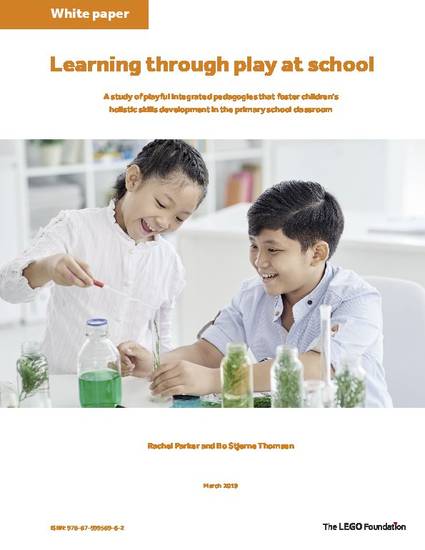
This scoping study seeks to understand the role and impact of learning through play at school. The evidence supporting learning through play’s positive impact on child development is strong. Yet many education systems have reduced opportunities for playful learning and increased emphasis on didactic and structured approaches to learning for school readiness and achievement. A re-calibration is needed, as experts have established that play supports the development of early literacy and numeracy skills while also cultivating children’s social, emotional, physical and creative skills. Eight pedagogical approaches are identified, namely active learning, collaborative and cooperative learning, experiential learning, guided discovery learning, inquiry-based learning, problem-based learning, project-based learning, and Montessori education. These pedagogies can altogether create learning experiences for children that are meaningful, actively engaging, iterative, socially interactive and joyful.
